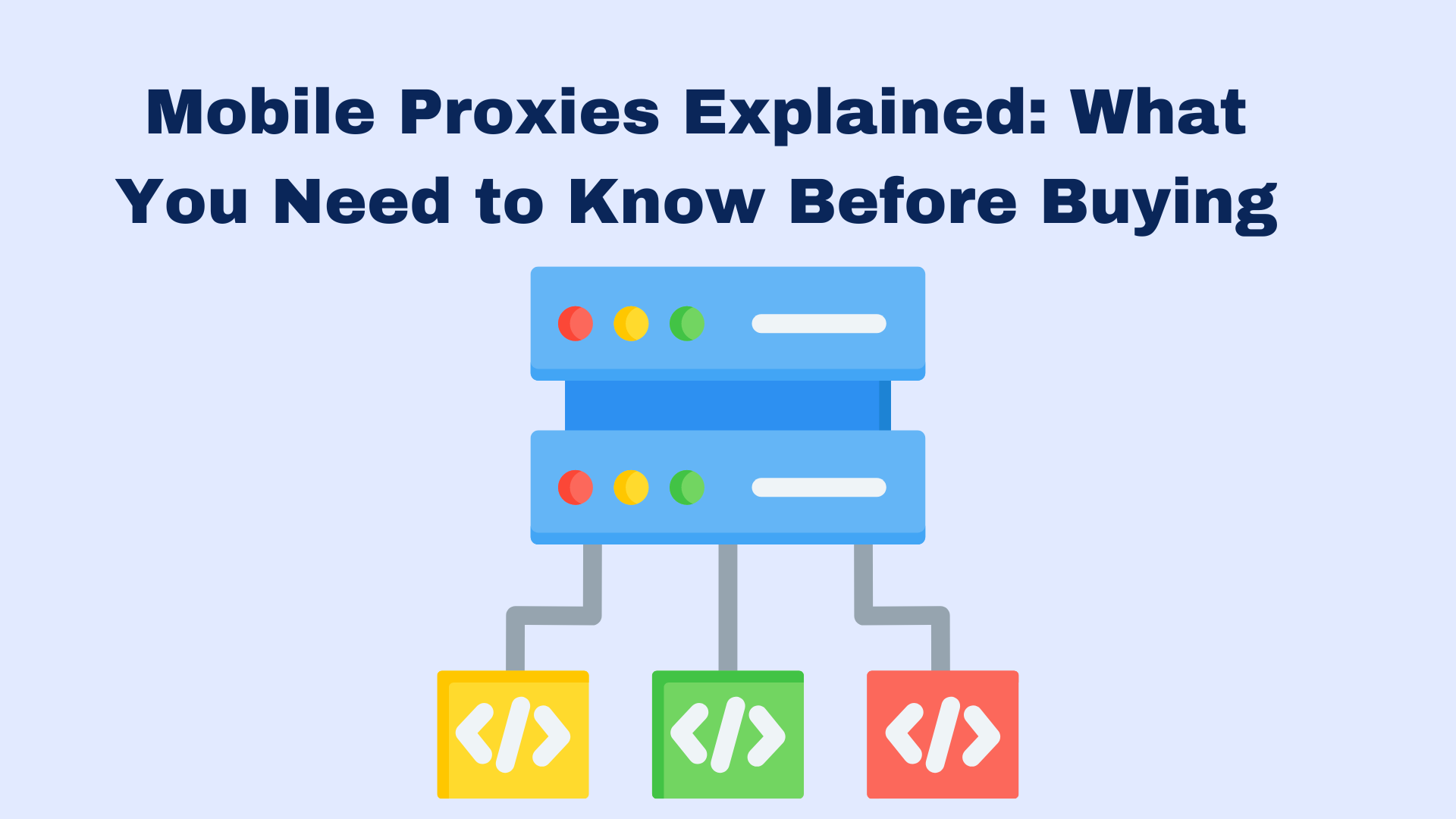In a world where digital footprints are constantly tracked, ensuring data privacy has become a priority for individuals and organizations alike. One of the tools increasingly being utilized for enhanced anonymity and security online is the mobile proxy. But what are mobile proxies, and how do they impact your data privacy? Here’s what you need to know.
What Are Mobile Proxies?
Mobile proxies are unique IP addresses assigned to mobile devices by mobile network operators. Unlike traditional proxies that use static data center IPs, mobile proxies route your internet traffic through networks of real mobile devices, using IP addresses from carriers like AT&T, Verizon, or Vodafone. Each time a user connects, they get a different IP address, often rotating among millions of IPs from real devices on 3G, 4G, or 5G networks. This makes mobile proxies particularly valuable for activities that require higher levels of anonymity and flexibility.
Advantages of Mobile Proxies for Data Privacy
- Enhanced Anonymity: Mobile proxies provide a higher degree of anonymity than traditional proxies. Because the IP addresses are associated with real mobile devices, they are less likely to be flagged or blocked by websites. This helps in reducing the likelihood of digital fingerprinting, where websites track and build profiles based on user activity.
- Bypassing Geo-Restrictions: One of the most popular uses of mobile proxies is to bypass geo-restrictions. For digital marketers, researchers, and privacy-focused individuals, mobile proxies allow access to content that may be restricted in certain regions or countries.
- Protection from Cyber Threats: By masking a user’s original IP address, mobile proxies provide an added layer of security against targeted cyber attacks, hacking attempts, and unwanted surveillance. This can be especially useful for journalists, activists, or anyone operating in a high-risk digital environment.
Data Privacy Concerns with Mobile Proxies
While mobile proxies offer many benefits, they are not without risks. It’s essential to be aware of potential data privacy concerns when using these proxies:
- Risk of Data Interception: Not all mobile proxy providers are trustworthy. Some providers may log user data, sell browsing history, or even participate in malicious activities. When using mobile proxies, it’s crucial to choose reputable providers with transparent and robust privacy policies.
- Involvement in Fraudulent Activities: The anonymity provided by mobile proxies can be exploited for fraudulent activities like ad fraud, fake account creation, and more. If a proxy user’s IP is associated with such activities, it could have consequences for the user’s reputation and digital footprint.
- Lack of Control Over Data: When using mobile proxies, users often have limited control over which IPs are being used and how their data is managed. The lack of transparency and control can be a significant drawback, especially for those who prioritize data privacy and security.
Best Practices for Using Mobile Proxies Safely
To maximize the benefits and minimize the risks of using mobile proxies, consider the following best practices:
- Select a Reputable Provider: Not all mobile proxy services are created equal. Look for providers with positive user reviews, transparent terms of service, and a clear commitment to protecting user privacy.
- Combine with Other Privacy Tools: To enhance data privacy further, consider combining mobile proxies with Virtual Private Networks (VPNs) or the Tor network. This can add additional layers of encryption, ensuring that your data remains secure even if intercepted.
- Regularly Monitor Your Digital Footprint: Stay vigilant by regularly monitoring for unusual activity that could indicate misuse of your data. Update security settings and consider using tools to manage and protect your online presence.
- Be Aware of Legal Implications: The use of proxies can sometimes fall into legal gray areas depending on the jurisdiction. It is essential to understand the laws in your region regarding the use of proxies and ensure compliance.



